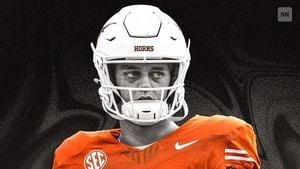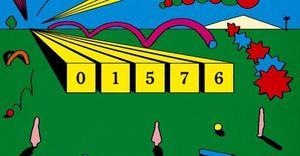Kyle Sieniawski’s story is, in many ways, a heartbreaking reflection of the challenges faced by families confronting rare and devastating illnesses. At just 14 years old, Kyle, from Pontypridd in Rhondda Cynon Taf, has been diagnosed with motor neurone disease (MND)—a condition that, according to the BBC, predominantly affects people in their 60s and 70s, rarely striking someone so young. Yet, for the past nine months, Kyle and his family have called a hospital room at Noah’s Ark Children’s Hospital in Cardiff their home, caught in a painful limbo between medical necessity and the harsh realities of housing shortages.
The family’s ordeal began in January 2025, when Kyle, then 13, lost mobility in his arm. The diagnosis of MND came as a shock. The disease, which attacks the nerves in the brain and spinal cord that control muscles, has since robbed Kyle of the use of all his limbs. He now relies on a breathing mask and a feeding tube. His mother, Melanie, captured the family’s anguish in a candid interview with the BBC: “You feel awful really, hopeless, because they tell you that there's nothing they can do to treat it, or there's no possible cure.”
For Melanie, her husband, and Kyle’s brother, the hospital has become both sanctuary and prison. “We are obviously very desperate. We are living in the hospital. All our lives are on hold,” Melanie said. The family has managed to keep Kyle stable, moving him into his wheelchair with the help of a hoist and ensuring he receives the medication he needs. But the situation is far from sustainable. “It’s quite scary because when we came in, he was walking, and now he can’t do anything,” Melanie reflected. The rapid progression of MND is well documented; the MND Association notes that a third of those diagnosed die within a year.
The Sieniawskis’ four-bedroom terraced house, which they’ve put up for sale, is emblematic of a wider problem. With steep steps up to the front door, a narrow hallway, and an upstairs bathroom, the home is simply not adaptable to Kyle’s needs. As Melanie explained, “With the three of us we can manage to hoist and move him and put him in his wheelchair. He's pretty stable and he's got all the medication that he needs.” But the physical limitations of the house make a return impossible.
Desperate for a solution, the family turned to Rhondda Cynon Taf council, asking for suitable temporary accommodation while they attempt to sell their house. The answer, however, was bleak: nothing is available. “It’s unbelievable… we’re in limbo,” Melanie told the BBC. “It’s really urgent because Kyle needs as much good quality of life as he can get now.”
The council has acknowledged the urgency of the situation and insists that Kyle’s family is considered a priority for all forms of housing. A spokesperson told BBC News, “The family are considered a priority for all forms of housing, and senior staff from children’s services and housing meet very regularly to explore all possible options for Kyle.” Yet, despite these assurances, no suitable property has been found. The council was frank about the limitations: “It is sadly impossible to adapt Kyle’s family home to meet his needs, the access and layout just does not allow it.”
In a bid to find a solution, the council has even asked the family to consider accommodation outside their local area in South Wales. But, as Melanie pointed out, “That would be quite difficult… and believe me, it’s hard enough as it is.” The prospect of uprooting the family from their community, especially at such a vulnerable time, adds another layer of distress to an already overwhelming situation.
Jen Mills, senior policy adviser for the MND Association in Wales, explained to the BBC that Kyle’s story, while deeply upsetting, is far from unique. “Kyle’s story is a very, very sad and difficult story for the family, but unfortunately, quite a common one for people living with MND,” Mills said. The crux of the problem, according to Mills, is the chronic shortage of accessible housing across Wales. “Accessible housing is an issue for several reasons, and partly because there’s not enough accessible housing stock across Wales.”
The statistics are sobering. MND is a relatively rare condition, affecting about 5,000 adults in the UK at any one time, with a person’s lifetime risk of developing the disease standing at one in 300. Most commonly, it strikes those over 50, but as Kyle’s case shows, it can affect younger people as well. The disease is relentless, gradually weakening and stiffening muscles, and impacting walking, talking, eating, and breathing. “MND is a really rapidly deteriorating condition and a third of people die within one year of diagnosis,” Mills added.
For families like the Sieniawskis, the lack of accessible housing means that the trauma of the diagnosis is compounded by bureaucratic and logistical hurdles. The council, for its part, says it is grateful for the family’s continued engagement and is actively searching for a solution. “We are grateful to the family for their continued engagement, and to recently agreeing for us to extend searches out of the local area to try to provide them with what they need,” the council said in a statement.
But for Melanie and her family, the wait is excruciating. The uncertainty about where they will live, and whether Kyle will ever be able to return home, hangs over them daily. “It’s really urgent because Kyle needs as much good quality of life as he can get now,” Melanie emphasized. Every day spent in the hospital is another day of normal life lost—a reality that is all too familiar for many families living with MND.
As Wales grapples with a shortage of accessible housing, stories like Kyle’s highlight the pressing need for systemic change. The intersection of rare disease and housing policy is rarely discussed, but for those affected, it is a matter of daily survival and dignity. The Sieniawski family’s ordeal is a stark reminder that behind every policy debate are real people, living with the consequences.
The search for a suitable home for Kyle continues, as does the family’s hope that one day soon, they will be able to leave the hospital behind—not just for Kyle’s sake, but for the future they are all so desperately trying to reclaim.




